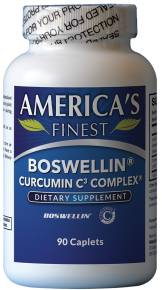Feeling... Down in the dumps Crabby? Grumpy? Stressed out? All of the above?
Don’t despair! If you’re experiencing seasonal sadness, premenstrual or menopausal moodiness, or the occasional blues, check out some of these helpful dietary supplements.
Vitamins to Help Elevate Your Mood
To get your spirits on the upswing, think B, C, D—as in vitamins.
-
B Vitamins to Help Beat the Blues
The B vitamins can help beat the blues. Birth control pills deplete B vitamins—so women taking them may need to supplement.
-
Vitamin B3 (niacin)
B3 helps the body make the neurotransmitter serotonin; a deficiency in serotonin is linked to depression.
-
Vitamin B6 (pyridoxine)
B6 is critical to nerve functioning. Too little B6 can bring on PMS and depression related to hormone imbalances.
-
Vitamin B9 (folate, or folic acid)
B9 can be involved in synthesizing serotonin.
-
Vitamin B12
B12 helps with mood and energy levels.
-
-
Improve Your Mood & More with Vitamin C
Vitamin C is linked to mood and, particularly in older people, to cognitive function. It’s water-soluble, so it should be taken daily.
In a study of hospitalized patients with C deficiency, twice-daily supplements of C decreased mood disturbances by 71 percent and psychological distress by 51 percent.
-
Vitamin D to Reduce Depression
The body needs vitamin D for many functions, but because people get it through exposure to the sun, many are deficient, especially those who live in colder climes.
A 2017 study of women with Type 2 diabetes who had symptoms of depression found that six months of D supplementation led to a decrease in depression and anxiety.
-
Magnesium and Iron for Mood Magic
Consider taking magnesium, which is key to the production of brain hormones, when you need to relax.
Consider iron supplementation to address low energy, chronic fatigue, and mood swings.
-
Stress Less with a Multivitamin/Mineral
Taking a multi may be an easy way to push through the blahs.
A four-week study of healthy adults ages 18 to 40 found that multivitamin/mineral supplementation significantly improved mood.
A study of healthy women ages 50 to 75 found that a single multivitamin/mineral supplement reduced stress within a couple of hours.
-
Omega 3s Elevate Your Mood & Cognitive Function
Omega-3 essential fatty acids work to reduce symptoms of depression and improve cognitive functioning and mood. Look for DHA—docosahexaenoic acid—and EPA—eicosapentaenoic acid.
Japanese researchers, in a 2017 study of men aged 55 to 64, found that those who supplemented with fatty acids including DHA and EPA reported a more positive mood.
Boost Dopamine Levels with Herbs & Probiotics
Another neurotransmitter, dopamine, can contribute to a flat mood. Signs of dopamine deficiency are loss of pleasure, motivation, and focus. Natural supplements can help.
-
L-tyrosine
L-tyrosine, an amino acid, supports production of dopamine and can assist with mood, sleep, cognitive function, and emotional health, especially when under stress.
-
L-theanine
Amino acid L-theanine, found in green tea and in supplement form, ups dopamine levels and reduces depression and anxiety.
-
Rhodiola rosea
Rhodiola rosea, an herbal supplement, works on the central nervous system to stabilize dopamine, resulting in lowered depression, anxiety, and fatigue.
-
Saint John’s Wort
A popular supplement to combat depression, Saint John’s wort works much like prescription antidepressants Prozac and Paxil do.
Check with your healthcare practitioner before taking it: as with all new supplement regimes, it may interact with medications.
-
Probiotics
There’s a lot of interest among researchers in the connection between gut health and brain health.
Early studies indicate probiotics may provide psychological benefits, including reducing symptoms of stress, anxiety, and depression.
Don't Ignore Chronic Depression
If you’re feeling down for an extended period of time, or if your symptoms seem overwhelming, see your physician or a mental healthcare practitioner right away. But for occasional times when your mood is off and you’re not quite feeling yourself, one or more of these natural remedies might provide the boost you need.





